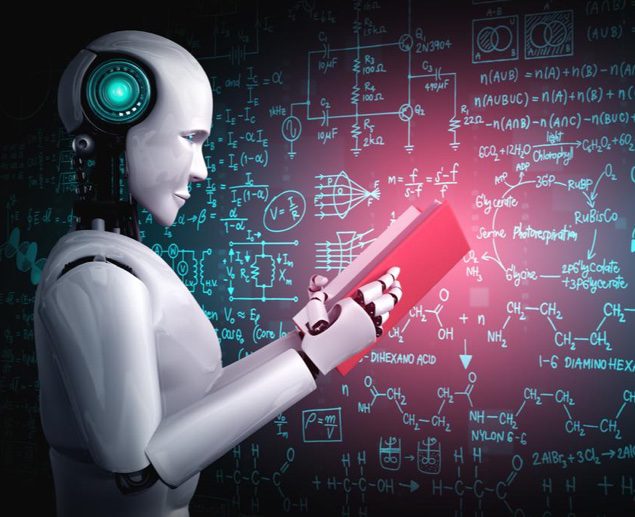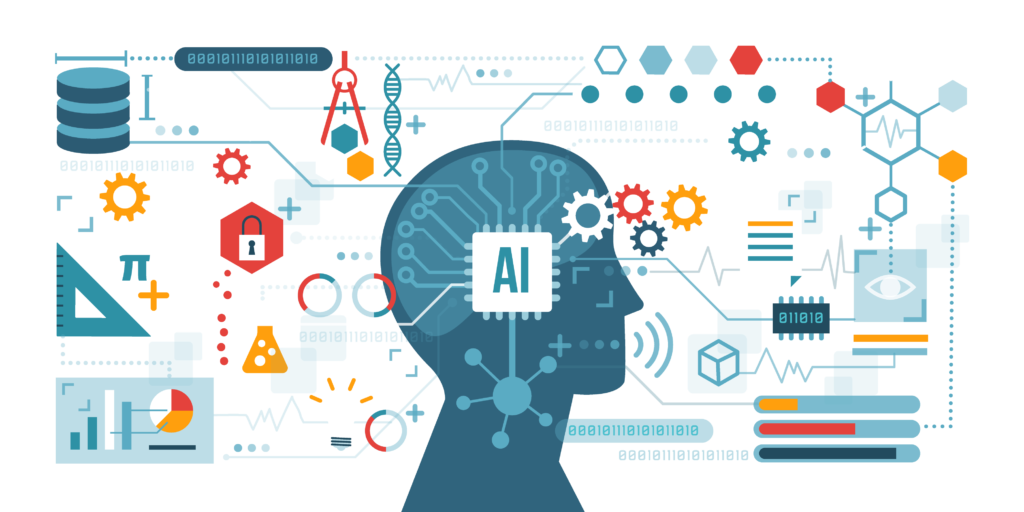Artificial Intelligence (AI) is one of the fastest-growing fields in technology. It is a term that encompasses various aspects of computer science, including machine learning, natural language processing, and robotics. AI has become a buzzword in recent years, and many people are curious about what it is, how it works, and its potential applications. In this article, we will provide a comprehensive guide to What is Artificial Intelligence? covering everything from its definition to its current state, and the Future of Artificial Intelligence.
Table of Contents
What is Artificial Intelligence?

Artificial Intelligence is a branch of computer science that aims to create intelligent machines that can perform tasks that typically require human intelligence. These machines can learn, reason, and perceive their environment. AI is not just about programming machines to perform specific tasks, but it also involves creating algorithms that can learn and improve on their own. Learn deeply about What is Artificial Intelligence.
History of Artificial Intelligence
To learn about What is Artificial Intelligence? you must know about AI history. Here we explain the history of AI.
The idea of creating machines that can mimic human intelligence has been around for centuries. However, the field of AI as we know it today began in the 1950s. In 1956, a group of researchers organized the Dartmouth Conference, where they discussed the possibility of creating intelligent machines. The term “artificial intelligence” was coined during this conference. In the following years, AI researchers developed various techniques, such as rule-based systems and expert systems, to create intelligent machines.
Types of Artificial Intelligence
There are four types of Artificial Intelligence: Reactive Machines, Limited Memory, Theory of Mind, and Self-aware AI.
Reactive Machines
Reactive Machines are the simplest form of AI. They can only react to specific inputs in their environment. They do not have the ability to store past experiences or use past experiences to inform future decisions.
Limited Memory
Limited Memory AI can learn from past experiences and use that knowledge to inform future decisions. They can make decisions based on a limited set of data, but they cannot reason beyond that data.
Theory of Mind
Theory of Mind AI can understand the intentions and emotions of other entities in their environment. They can understand that other entities have beliefs, desires, and emotions that influence their actions.
Self-aware AI
Self-aware AI is the most advanced form of AI. They have consciousness and can understand their own emotions, beliefs, and desires. Self-aware AI does not exist yet, but it is the goal of many AI researchers.
How does Artificial Intelligence work?

Artificial Intelligence works by creating algorithms that can learn and improve on their own. There are three main techniques used in AI: Machine Learning, Neural Networks, and Deep Learning.
Machine Learning
Machine Learning is a technique that allows machines to learn from data without being explicitly programmed. Machine Learning algorithms can analyze data, identify patterns, and make decisions based on that data.
Neural Networks
Neural Networks are algorithms that are modeled after the human brain. They consist of interconnected nodes that can process and analyze data.
Deep Learning
Deep Learning is a subset of Machine Learning that uses Neural Networks with many layers to analyze data. Deep Learning is used in applications such as image and speech recognition.
Applications of Artificial Intelligence
Artificial Intelligence has a wide range of applications across various industries. Some of the most prominent Applications of Artificial Intelligence include:
Healthcare
AI is being used in healthcare to improve patient outcomes, reduce costs, and increase efficiency. AI algorithms can analyze medical records, identify patterns, and make diagnoses.
Transportation
AI is being used in transportation to create self-driving cars and improve traffic flow. Self-driving cars use AI algorithms to navigate roads, avoid obstacles, and make decisions.
Customer Service
AI is being used in customer service to provide personalized experiences for customers. Chatbots and virtual assistants use AI algorithms to understand customer queries and provide relevant responses.
Finance
AI is being used in finance to identify fraud, automate processes, and provide personalized investment advice. AI algorithms can analyze vast amounts of financial data and identify patterns and anomalies.
Benefits of Artificial Intelligence

Benefits of Artificial Intelligence: Artificial Intelligence has several benefits, including:
- Increased efficiency and productivity
- Improved decision-making
- Personalized experiences for customers
- Improved healthcare outcomes
- Reduced costs in various industries
Challenges of Artificial Intelligence
Artificial Intelligence also presents several challenges, including:
Job Displacement
AI has the potential to automate many jobs, which could lead to job displacement. However, AI could also create new jobs in fields such as AI development and maintenance.
Bias
AI algorithms can be biased, which can lead to discriminatory outcomes. It is crucial to develop algorithms that are fair and unbiased.
Privacy Concerns
AI algorithms can collect vast amounts of personal data, which can raise privacy concerns. It is essential to ensure that data is collected and used ethically and with consent.
The Future of Artificial Intelligence
The Future of Artificial Intelligence is exciting and full of possibilities. Advancements in AI could lead to significant breakthroughs in various fields, including healthcare, transportation, and finance. However, there are also ethical considerations that must be addressed, such as ensuring that AI is used ethically and without bias.
Conclusion
Artificial Intelligence is a rapidly growing field that has the potential to transform various industries. AI algorithms can learn, reason, and perceive their environment, and they have a wide range of applications. While AI presents several challenges, it also presents several benefits, and its future is full of possibilities.